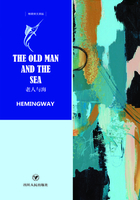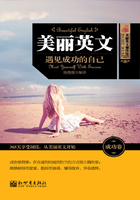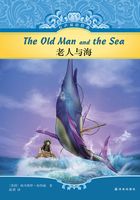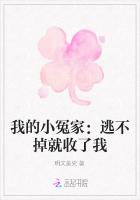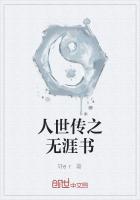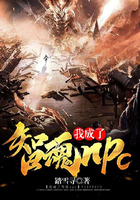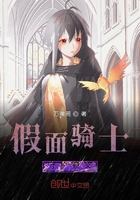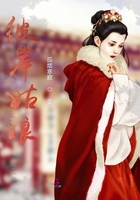Personal FileName: Jin Ho Jun
Nationality: Korean
Occupation: Student
Time in China: 8 yearsJin Ho Jun, a 34 -year-old Korean, hasstayed in China for more than eight years becauseof his love for Chinese medicine; he nowregards China as his home. He led a simple andaustere student life for most of that time. Hiscollege life, a time when most Chinese studentsare enjoying themselves, this “ascetic” wasimmersed in traditional Chinese medicine andspent more than fifteen hours every day “meetingthe ancients in spirit”。
208 Traditional Chinese Medicine Fever in KoreaWhen we met Jin Ho Jun at the gate of the Beijing University ofChinese Medicine, the Korean student in front of us didn’t look nerdy,which was our impression of most students of traditional Chinesemedicine, but more like the handsome boy from our neighborhood,with sharp eyes behind red glasses.
We started our talk with the once-popular Korean TV series TheGreat Jang Geum. Jin Ho Jun said with a smile, “Jang Geum is thefirst Korean who brought milk vetch root from China to Korea. At that time, milk vetch root was called Bai Ben and was notavailable in Korea. Thanks to Jang Geom it was introduced to Koreafrom China and spread among the common people. Now it has becomeone of the indispensable tonics good for reinforcing “qi” (the Chineseword for vital energy)。
Jin Ho Jun explained that traditional Chinese medicine is quitepopular in Korea and traditional doctors’ income is even higher thanthat of doctors of Western medicine. The Korean magazine Career(a monthly employment periodical), once took a survey of “the mostpopular professions in Korea for 2010”, and the result showed that themost popular profession in Korea in 2010 was a doctor of traditionalChinese medicine.
Koreans edited the Chinese book The Medical Classic of the Yellow Emperor into a work as interesting as a novel, and so the bookis quite popular in Korea. Recently Koreans are also preparing to usethe name Korean Medicine for Chinese medicine and apply for WorldHeritage status. This action has aroused opposition among traditionalChinese medicine doctors in China.
“Most Koreans drink a decoction of medicinal ingredients sincechildhood”, Jin Ho Jun said. Traditional Chinese Medicine is regardedas a superior major in Korea and the entrance examination is as difficultas that to enter Tsinghua University or Peking University in China.
Moreover, the income after graduation is quite high. There are elevenuniversities in Korea for traditional Chinese medicine and it is rathercompetitive for students to apply for their bachelor programs. Everyyear, a majority of freshmen entering traditional Chinese medicineuniversities are people who have already had great career achievements,such as correspondents, university professors, leaders of bigcorporations, etc.
Four Hours of Sleep Every DayJin Ho Jun, together with two other Korean students, paid 3,20yuan each per month to rent an apartment near the school. It takes himonly five minutes to walk from home to school. Meanwhile he spendsan additional 1,600 yuan per month to rent a study room in the school,and studies as hard as the ancient Chinese.
Getting up at seven for class at eight, Jin Ho Jun studies late untilaround ten each night and then leaves the study room. Jin Ho Junspends around fifteen hours each day in the study room and has notime even for physical exercises.
The study room is surrounded by Korean atmosphere: on theshelf there stand books in Korean, such as Treatise on Febrile Causedby Cold, and The Theory of Prescriptions and Herbal Formula; onthe wall there hang two Korean characters for “quiet”; on the table arescattered snacks in Korean packaging.
Weak since childhood, Jin Ho Jun had a fever four to five timeseach year, therefore he has taken a lot of medicine and has a close linkwith traditional Chinese medicine.
Jin Ho Jun came to China in 1999 and studied at the Changchun21 0 Institute for Chinese Medicine for two years. At the beginning of hisstay in China, he did not understand Chinese and had difficulty keepingup in class, as the courses were taught in Chinese. Therefore, hespent half a year learning Chinese. He studied very hard, spent most ofhis time reading books and slept only four hours a day. He asked fourChinese students to be his Chinese teachers so that he could study Chineseevery minute. After one year, he had basically mastered speakingand reading in Chinese and could handle 80% of the vocabulary relatedto traditional Chinese medicine.
One day, a young man of around 20 was sent to the hospital; hewas pale, sweating and having a fever. Jin Ho Jun diagnosed his illnessas “stagnation of food”。 It was his first time practicing acupuncture,but he immediately developed an “acupuncture sense”。 The patient’ssymptoms disappeared twenty minutes after his treatment, and Jin HoJun became more confident of traditional Chinese medicine.
Jin Ho Jun was accepted by the Beijing University of ChineseMedicine in 2002. He has studied there for five years and was awardedhis diploma this July. He finished more than forty courses in traditionalChinese medicine and Western medicine during this period and armedhimself from head to toe in knowledge. Books such as The Medical Classic of the Yellow Emperor and Treatise on Febrile Caused by Coldby Zhang Zhongjing are all essential and important books. Worriedabout inaccurate translation from Chinese to Korean, Jin Ho Jun readthese books directly in Chinese. However all these books were writtenin blunt prose in the classical Chinese literary style, and it is not possibleto understand the books without some knowledge of the classicalChinese literary style. Therefore Jin Ho Jun started to study classicalChinese literature and even exceeded the common Chinese in terms ofunderstanding classical Chinese.

